
Deze recentie kan spoilers bevatten
Sweet
The plot is sweet and all but I gotta admit it was a bit confusing. I wanted more tbh from them,more romance is what I wanted to say. They were just about to start the romance then boom he died. I am ashamed to say this but I was kinda waiting for an R-rated scenes the entire movie. Both the actors were so hot,so I expected that there will be one but alas. I wanted them to have a romantic relationship first. Not like the relationship they had before was not romantic but i wanted more, starting deeply in love in someone's eyes,date scenes,awkward silences. I feel like this would have been better as a series cause there is so much interesting plot to be given here. A movie just doesn't do it justice. But I still liked it. It's cute but I was expecting a little bit more.Vond je deze recentie nuttig?

Good watch!
Recently, I was introduced to the world of anime by a friend. Her favorite one is Nana, so naturally, that's what I watched as my first anime. I finished the anime of Nana today, and it left me a little sad, so I couldn't help but want to watch the movie immediately.Wow! I was not disappointed! I loved it! Firstly, this came out in 2005, and I just wanted to note that I liked the nostalgic feel. I think most of the cast were perfect for their roles. And I think that the story played out nicely, like the anime. I think this is a really well-done adaptation. The acting was good, as was the pacing. Overall, it was a really good watch.
I have confidence that someone who hasn't even heard of the anime would like this movie. It's a nice story. I just found out right now that there is a number two, so I will be watching that as well.
Vond je deze recentie nuttig?

From soft nice guy to deadly person
This movie is definitely a must watch because it covers certain gaps of the Untamed series. It also greatly explains why someone with a loving soft nature like Nie HuaiSang became someone who is so great in planning, cruelty and hell bent on revenge and was the person who brought Jin GuangYao to his downfall in The Untamed series. Amongst so many of the clans in the Untamed series, I would say the Nie Clan was - in my own personal opinion - the only one that wasn't into this power struggle.Other than filling an immensely big gap of understanding, this movie is also showing the difference and explaining the difference of the Nie Clan that uses Knives instead of real swords like the other clans. It also explains a little of the Clan's history, for those who are interested in knowing. But, to me, this is an eye opener to a number of questions I had after watching The Untamed. I would say it would definitely be a great watch, for a first time and also a re-watch if you are interested after that.
I love the song that was for the Nie brothers. Absolutely beautiful.
Vond je deze recentie nuttig?
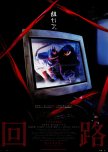
Deze recentie kan spoilers bevatten
A Haunting Exploration of Modern Isolation
Pulse (2001) is a masterful film that delves deep into the existential fears of the digital age. Often misinterpreted as a simple ghost story, this film is, in fact, a profound commentary on the isolating effects of modern technology.Set in an era when the internet was just beginning to weave its web around our lives, Pulse portrays a chilling reality where technology, intended to connect us, instead amplifies our deepest loneliness. The "ghosts" that haunt the characters are not traditional supernatural beings but metaphors for the overwhelming isolation brought about by the digital world.
The film follows two interwoven storylines: Michi, a young woman dealing with the mysterious suicide of her friend, and Kawashima, a university student who becomes obsessed with a disturbing website. As their lives intersect, they uncover the haunting truth: the internet is not just a tool but a trap, drawing people into an abyss of despair.
The use of red tape to seal off certain rooms is a powerful symbol in the film. It represents the characters' desperate attempts to contain the emotional and psychological harm caused by their digital interactions. These taped doors are warnings, marking spaces where the boundary between the living and the dead—or, more accurately, between connected and isolated—has been irreversibly breached.
One of the most poignant elements of Pulse is the haunting shadows left behind by those who vanish. These shadows symbolize the lingering despair and the unfulfilled cries for help from those who succumb to the isolation. They are not just remnants of the departed but stark reminders of the emotional void that technology can create.
The message is clear: the internet, while promising connection, often leaves us feeling more alone than ever. The film's characters, overwhelmed by loneliness, are driven to desperate acts, highlighting the devastating impact of a world where true human interaction is increasingly scarce.
Pulse is a hauntingly beautiful film that resonates deeply with the challenges of our time. It serves as a poignant reminder of the importance of genuine human connections and the emotional dangers lurking within our digital dependencies. For anyone seeking a deeper understanding of the psychological impacts of technology, Pulse is a must-watch.
Vond je deze recentie nuttig?
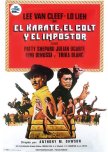
Brilliant fun
A bizarre concoction of comedy, martial arts, and spaghetti western action, The Stranger and The Gunfighter is hard to fault in terms of sheer entertainment value, one that works because, unlike other Shaw Brothers collaborations, ergo Legend of the 7 Golden Vampires, it doesn't take itself too seriously. Most of the comedy is daft, but there are a few inspired jokes littered throughout, even with the rather repetitive script the film never wastes too much time in one spot, leading the two heroes from one fantastic set piece to another with an admirable pace. The film makes the best of the opposition between the polite, dutiful Easterner and the selfish, roguish Westerner, but without making any serious socio-cultural statements. It helps enormously that both Lo Lieh and Lee Van Cleef are the leads, Cleef is especially funny in the film which makes a nice change from his roles as the villains and stoic characters in his earlier spaghetti westerns while Lieh is just as awesome as he always is. Antonio Margheriti's direction is pretty great but the unfortunate grotty transfers this film has been confined to do his work a major injustice at points as his photography of the Almeria locations gives the film a paramount look which works exceptionally well with Carlo Savina's fun score. A well-balanced mix of exploitation comedy, The Stranger and The Gunfighter is well worth a look for aficionados of either genre.Vond je deze recentie nuttig?

Good but more soft pay gorn instead!
I've been watching this and it's great movie i can tell. The actor is giving me intense vibes that it's like a real. I barely understand what they talking about because the sub is unclear and probably kinda wrong tho but honestly is best soft pay gorn movie i ever watch. The tension, the feeling they gave, the expression between main lead is so generous and genuine, love it. I just think that this movie is so short so it cannot delivering meaning of this movie( especially they focused on s3x or intimate scene ). It's pretty good and i do enjoy it, the main lead also had nice body features and act like actual one when do intimate scene, so it's really interest me a lot. Hopefully they make the full series so that the story is clever and clear ...That's it, 9/10 from me!!
Vond je deze recentie nuttig?

Heartbreaking and painful watch
This short movie of about 31 min. was quite heartbreaking and painful to watch. It was not bad for sure and it made me emotional in a kind of angsty and melancholic way. The "what could have been" thought and "timing is everything" life lesson are the key points of the story.It is very unlikely that I will rewatch it as it was not that enjoyable "per se" but it was evocative and thought provocative while depicting a somewhat very classical melodramatic and romantic story. The ending scene was brutal and gut wrenching.
The cast did an overall good job. Nothing really outstanding, as there were almost no dialog, I wish they had pushed even more the gazes and silent acting work. But it was suitable enough to get the feelings across.
I would recommend this to people that are looking for a short movie featuring a rather melodramatic story in a library setting. Personally I found it quite painful to watch but well done for what it is trying to say.
Vond je deze recentie nuttig?

Deze recentie kan spoilers bevatten
A Double-Edged Exposure
Double Exposure (이중노출) is a Korean BL film released on October 18, 2024, on Heavenly, written and directed by Kim Min-wook and starring No Ji Hun as Myeong Seon, alongside Kim Sung Kyung as Gi Jun and Jeong Hyeon. The story revolves around Myung Seon, a photographer who crosses professional lines with his assistant’s boyfriend, Gi Jun, only to later encounter Jung Hyun, a man who bears an uncanny resemblance to Gi Jun but has a starkly different personality. This meeting leads Myung Seon to wonder whether Gi Jun ever really left his life.The premise is intriguing, but after watching Double Exposure multiple times, I found myself struggling to grasp the film’s underlying message. It seemed to be pushing for something profound, yet it often felt more confusing than deep. When it wasn't relying on explicit scenes, it shifted to dialogue that aimed to be meaningful but came off as dull and repetitive. It could’ve been a straightforward, sensual film, but it seemed compelled to inject an "artsy" significance, which fell flat.
One striking example is the film’s fixation on hands. When Myeong Seon first meets Gi Jun, they have an oddly philosophical exchange about hands, and Myeong Seon even compares Gi Jun’s hands to those in a da Vinci painting. From there, hands become a central motif—close-ups of hands unclenching, fidgeting, and being directed in stiff poses during the photoshoot. By the end, we're hit over the head with a close-up of the Mona Lisa's hands, underscoring this metaphor that felt overused and, frankly, unnecessary.
The characters themselves feel underdeveloped. Myeong Seon, aloof and distant, is well aware of his own cruelty but seems detached from the consequences of his actions. He chooses to treat Gi Jun as a fleeting muse, disregarding their affair’s moral complications. And yet, when he encounters Jung Hyun, Gi Jun’s stronger-willed doppelgänger, there’s a palpable shift. Suddenly, Myeong Seon abandons his polished professional camera for a rawer 35mm film camera and even a Polaroid, capturing Jung Hyun in unguarded, candid shots. The perspective changes subtly as he finds himself drawn closer to this version of Gi Jun.
Despite the intrigue around the “are they or aren’t they the same person” mystery, the weak plot and lack of character development overshadowed it for me. The film seemed bogged down by monotonous dialogue, leaving little space for meaningful growth.
That said, I can understand the appeal for some viewers. For those who appreciate a raw, artistic exploration of sensuality, it might feel refreshing. There's a sense of Japanese gay cinema’s influence throughout, and the natural portrayal of the male leads is unique for Korean film. It does take courage to create something with such unfiltered intimacy.
The twist was decent, and perhaps with more development, it could’ve packed a stronger punch. Nonetheless, if you’re curious, give it a go; you might find something in it that resonates more with you than it did with me.
Vond je deze recentie nuttig?
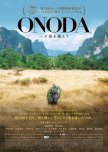
Romanticisation at a cruel cost
The credits roll and my first thought is: What is the Filipino take on all this?But we’ll get to that shortly.
The film Onoda is the fictionalised story of Hiroo Onoda, one of the last Japanese soldiers to surrender after the end of WWII. He was a ‘holdout’ on the Filipino island of Lubang until 1974. He survives in the jungle in denial of the war's end, losing his compatriots one by one. The story is fictionalised in more ways than one, but we’ll get to that shortly too.
At face value, the movie is surprisingly engaging given its long run time. There are also some pretty landscape shots. But that’s about all the positives I have for this piece of cinema. Buckle yourself in, folks!
Let’s start with a simple point. For a story so embedded in its Filipino geography, the decision to shoot in Cambodia feels off. And there’s good reason.
It’s a European production…with a French director…about a Japanese soldier…in the Philippines. Yes, that should raise an eyebrow.
“If you add up all those nationalities [who worked on the film], it makes the film from nowhere,” director Arthur Harari says in an interview with Asian Movie Pulse.
Yet, Cambodia was the destination of choice because Harari wanted a French-speaking film crew. Cambodia is a former French colony. It's certainly not “nowhere”. Neither is Lubang. The shoot location is only one of the ways in which colonial politics seeps into this cinematic production.
Many a filmmaker has simped for the romantic man-survives-jungle trope and Harari is no different, citing the likes of Joseph Conrad as original inspo for this movie. But it comes at cruel cost to the Filipino characters and their real-life counterparts.
I agree with James Lattimer’s assessment that the Filipino characters are used as “little more than cannon fodder”. Harari’s avoidance of the Filipino side – in terms of both geography and narrative – is a result of wilful ignorance. That is because he relies on Onoda the myth, not Onoda the man.
In true à la française style, Harari projects some kind of universalist reading of human experience onto Onoda’s story.
“I didn’t read historical books about Japan or the war,” he admits in an interview, “because the fact is that everything about Onoda’s story can be understood even if you don’t really know the general situation of the war, the Pacific War, or the history of Japan.”
In fact, Harari only read one book about Onoda, written by two Frenchmen: ‘Onoda: Seul en guerre dans la jungle’. As far as I can tell, the text seems sympathetic to Onoda’s side of the story, describing Onoda as a “prisoner of that island, of that oppressive jungle” (own translation). Heart of Darkness much? Either way, Harari mostly upholds the romantic hero image of Onoda in the film, an image which Onoda himself first established when he published his autobiography.
But even a little bit of reading about Japan or the war reveals how the Filipino people were cruelly caught in colonial crossfire. Their lives and land were used as military props and staging by the Japanese (and, of course, the Spanish and the Americans before that).
Onoda’s autobiography omits Onoda’s many gruesome murders of Lubang’s residents. Tsuda Shin, ghost-writer of Onoda’s autobiography, revealed this much when he wrote his own exposé on Onoda a couple of years after the autobiography came out.
Even now, it’s Harari’s cinematic project that receives the funding and the spotlight. Meanwhile, the Filipino side of the story struggles to see the light of day. Mia Stewart has set out to correct the record via documentary making. Her maternal relatives lived – and still live – in Lubang and experienced first-hand Onoda’s violent atrocities.
“They weren't just shootings, there were very violent killings that involved beheadings and mutilating bodies,” Stewart says in an interview with SBS.
Lack of funding means her documentary still hasn’t been released. But it’s a good cause. A myth like Onoda’s needs interrogation.
“We will never really know if Onoda knew the war was over or not. Regardless, he killed civilians. While I can't undo those deaths, I can change how we tell the story,” Stewart says.
----------
Stewart’s forthcoming documentary, ‘Searching for Onoda’: https://searchforonoda.com/
Stewart’s interview with SBS: https://www.sbs.com.au/news/article/mias-uncle-bled-to-death-she-wants-to-set-the-record-straight-about-why/qig3whkdb
Insights on Harari’s approach come from this excellent A. E Hart piece: https://www.documentary.org/online-feature/domitable-myth-three-depictions-japanese-holdout-soldier-hiroo-onoda
James Lattimer’s review: https://www.bfi.org.uk/sight-and-sound/reviews/onoda-10000-nights-jungle-lost-filipino-wilds
Vond je deze recentie nuttig?
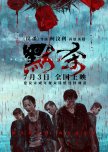
Acting doesn't let you down
Investigations into a string of murders involving students attending a girls' school in the village, starts unravelling dark truths which might help capture the killer. Movie goes in a decent pace, with smooth plot twists incorporated seamlessly. The actoring imho is top notch. Cinematography and sceneries being a wonderful bonus.If you can handle the strong disturbing tags including child abuse, domestic abuse, violence, bullying - I'd suggest not to look too much into reviews or comments, and dive right into the movie.
Beginnings have the power to capture the interest of the viewer, middle is THE whole substance but a really good ending is leaves the movie lingering in one's mind. Every part was delivered well in this movie.
It was a beautiful wrap up, nailed in the feels, and music was so impactful!!
Vond je deze recentie nuttig?

Great film but left me mixed feelings
I just watched on Netflix after wanting to watch it for a long time, and it lived up to my expectations. I wanted a queer angst story with beautiful scenery kind of film. And it did give me that.But it let me down with the ending and the plot twist, if it can be called like that?
I suffered throughout the last half of the movie, I didn’t like the way it turned out; it just wasn’t what I wanted from the storyline, it was a happy ending at least.
Tian Yu and Yi Xiang were both great characters, the acting and chemistry was outstanding and cute. Totally won my heart.
I would say that indeed, it’s not a BL movie like people were saying. But they definitely were gay for each other, that was pretty clear to me. Just nothing explicit.
Overall, it’s a great film, with good acting, visuals, and the music too. Not the best plot, but not bad either. I think you should give it a chance for sure.
SPOILER:
I NEED TO SAY THIS:
I WAS REALLY MAD ABOUT THE FESTIVAL, god I just wanted them to happily see the fireworks together. My heart was torn apart on that scene when Tian Yu was waiting for Yi Xiang and he was fighting for his life and wanted to go with him. <\3
And I just can’t stop thinking that yeah at the ending Tian Yu got Yi Xiang/ Jin Run Fa back but it wasn’t really his A Xiang, since he didn’t remember anything about him, that’s what I didn’t liked about the movie. Why he had to die? And then be replaced for another version of himself somehow… IT DIDNT FEEL RIGHT TO ME, IDK
Vond je deze recentie nuttig?

The time travel makes the film unique among other recent Taiwanese LGBT productions
Who has not ever dreamed of taking a walk through the gladiator era in the Roman Colosseum or playing chess with Napoleon Bonaparte? As long as mobile phones do not incorporate the function of taking leaps through History – something impossible and unusual, at least for the moment –, there is always the option of dreaming thanks to cinema.For as long as we have been aware of it, the passage of time and its nature have fascinated humanity. Particularly in cinema, time travel and temporal paradoxes have proven to be a resource that, well used, has given rise to truly fascinating films, from well-established classics like 'Back to the Future' to recent gems like 'The Time of Huan Nan', a romantic Taiwanese LGBT+ adventure directed by Leading Lee ('Anywhere, Somewhere, Nowhere', 2014).
Starring Hsia Teng Hung, Wang Yu Ping, Edison Song and Chu Meng Hsuan, the film evokes other notable Taiwanese films, while exploring LGBT+ relationships, family relationships, parents' refusal to accept their children's homosexuality and the market traditional Huan Nan, with a history of 55 years, located in the Monga delta, bathed by the Tamsui River and the Xindian River, in the Mongka district of Taipei.
Inspired by true events, field research and production took more than three years and the film is a strong collaborative project with various departments of the Taipei City government. It was filmed on location in the district and cast many local market vendors.
Although the supreme objective of the film is to represent this historic place where thousands of inhabitants of the island capital converge daily, 'The Time of Huan Nan' is more than the sum of its parts and is a moving work.
Epic, intimate, and with intense colors, 'The Time of Huan Nan' reminded me of 'Les 7 Vies de Léa', a French series released by Netflix in 2022, and which also takes us back 30 years to 1991, but in This case involves teenagers. Something like this happens in the Taiwanese film, although not as complicated.
The film revolves around Chen Yao Hua (Hsia Teng Hung), a daring high school student who in the year 2022, in the midst of the Covid-19 pandemic, works in the historic market at the family butcher stall. While filming with his cell phone his father, Chen Bao Ding, who in the middle of a depression dances on the roof of the market with a sword, Chen is suddenly transported 31 years ago, to 1991, when his father was young.
The film shows that from this roof you can see the best panoramic night views of all of Taipei.
Mistaken for Liu Yong Hui, a missing high school student (which is why he will be called by that name from then on), Chen Yao Hua unexpectedly enters the circle of three inseparable friends: the young version of his own father (Edison Song), An Jiang Chang (Chu Meng Hsuan), her father's lover, and Yu Kang Ming (Wang Yu Ping), the only female member of the close-knit group of friends and who plays an important role in bonding the four gang members
From the first moments, Chen Yao Hua, who has traveled back in time to trace his father's history and discover why he suffers from depression, falls in love with Yu Kang Ming, but neither of them know how to deal with the other's attraction, and, in turn, discovers that his father is homosexual and has a secret relationship with Chang An Jian.
In this way, in this vibrant and vigorous scene converted into another character, these three homoeroticly filmed handsome men, and the charming girl, take the oath as the "Four Young Brothers of Huan Nan" They hang out at the market and flirt with each other while exploring life's possibilities.
Well filmed and with an outstanding rhythm, the film tells us how the four characters jump between 1991 and 2022, while they experience the changes in their lives and how their passions, desires and regrets develop over just over three decades; and how they can make changes to redeem the losses and pain they endured all that time.
All this against the backdrop of a time that is not tolerant for LGBT+ people in Taiwan, and in which the lives of the four friends will eventually be destroyed.
Full of warmth, sensuality and love, in this sense, 'The Time of Huan Nan' joins the list of Taiwanese films that explore homosexual relationships from martial law to today, as is the case with 'Your Name Engraved Herein', by Kuang-Hui Liu (2020), or 'Girlfriend Boyfriend', by Yang Ye Che (2012).
Likewise, like this last film, or 'Eternal Summer', by director Leste Chen (2006), 'The Time of Huan Nan' presents the dynamics of a love triangle between a heterosexual woman and two homosexual men.
Likewise, 'The Time of Huan Nan' evokes other Taiwanese films, while in its final stages it makes visual references to 'The River', by Tsai Ming-liang, while the dynamic between the four protagonists is reminiscent of 'Mongka', the film by 2010 year by filmmaker Doze Niu, including queer subtext. In this way, these two productions share the environment, taking as their setting that historic district of the Taiwanese capital, considered the oldest neighborhood in the city.
Likewise, the intimate bath that Chen Yao Hua gives to Chen Bao Ding reminds me of the bath, in which perhaps strangely because they are father and son the homoerotic aspect is more than hinted at, the one given by Ah Jie (Roy Chiu) to Zheng Yuan (Spark Chen), in 'Dear Ex', the film directed by Taiwanese Mag Hsu.
However, the time travel narrative makes 'The Time of Huan Nan' unique among other recent Taiwanese LGBT films, and its stylistic flair makes it superior to recent hits like 'Marry My Dead Body'.
This won't be the only bathing scene. This will not be the only intimate and homoerotic moment: the three men will enjoy themselves in a public bathroom, and in it the two young lovers will clean their bodies with soap and water under the curious gaze of Chen Ya Hua. Because yes, in 'The Time of Huan Nan' there will be no sex scenes, not even a shy kiss, but there are many dazzling close-ups of beautiful male faces, torsos and buttocks, and intimate close-ups and sexy players behind a ball in a rugby match
Beyond the good editing, the beautiful photography and an exciting and stimulating story full of convincing performances in which the four protagonists carry the weight of the film, with a powerful mix of charisma and excellent chemistry between them, 'The Time of Huan Nan' also seems like a movie that couldn't have been filmed anywhere in Asia except Taiwan.
The most obvious sign of this is its direct representation of LGBT+ characters and themes. While other Asian countries make films of this genre and theme, they are generally not for general consumption.
In just three months since its premiere on July 13, 2024 at the New York Asian Film Festival (NYAFF), 'The Time of Huan Nan' has become a very popular film. This perhaps reflects Taiwan's continuing reputation as the most tolerant place towards LGBT people in East Asia. Although the advances or setbacks in terms of the rights of LGBT+ people may be conditioned by who are the politicians who govern at the level of the entire Island as well as in each district, and impediments that threaten the lives of homosexuals, such as that a gay couple can adopt a child and the impossibility of having property rights and hereditary rights, the widespread success of this film validates and further increases Taiwanese tolerance towards people from that community.
Even the performances of the secondary characters, such as Chen Yao-hua and Chang An-jian's parents, are good, despite their small roles.
The flaws of 'The Time of Huan Nan' are mainly narrative. Chen Yao Hua is perhaps too indifferent to the many new discoveries about his father. Likewise, the film may not stick to its premise, with the time travel plot losing steam towards the end once Chen Yao Hua returns to the present, and is now seen to have been missing for thirty years.
It is dark and complicated to say the least. Especially when he has to worry about an unfolding tragedy: Chang An Jian's disappearance thirty years ago, so he must return to the past once again. But this is not a world in which the future traveler can alter events while traveling through time.
On the other hand, already in the endings, an overly didactic and explanatory section is introduced about the Huan Nan market and the Mongka district, which breaks with the tone and dynamics of the film.
Vond je deze recentie nuttig?
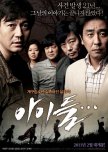
The story and acting ????
الفيلم عن قصة حقيقيةالفيلم مؤذي نفسيا
للأسف النهاية توجع القلب
التمثيل بيرفيكت
من احلى الأفلام
💯💯💯💯💯💯💯💯💯💯💯💯💯💯💯💯💯💯💯💯💯💯💯💯💯💯💯💯💯💯💯💯💯💯💯💯💯💯💯💯💯💯💯💯💯💯💯💯💯💯💯💯💯💯💯💯💯💯💯💯💯💯💯💯💯💯💯💯💯💯💯💯💯💯💯💯
Vond je deze recentie nuttig?
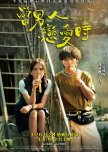
Good acting, unexpected development
I hadn’t read any reviews before watching this, so for me, the story development came as a surprise.Writing this without trying to give away spoilers, but if you really don’t want any hints or clues, then stop reading as it is difficult.
####
The synopsis on Netflix is really short, and I didn’t really remember if I watched the trailer back when I added it to my watchlist. So, for me, this kind of hit me right in the heart.
Maybe I was expecting a bit more lighthearted banter, and not something that was quite emotional (I cried).
It felt shorter than what it is; I actually felt they could have let some of the story play out in a little more detail.
The two main actors were great; not boisterous taking up a lot of attention, but low-key strong presence.
The ending kind of left me wanting more.
Vond je deze recentie nuttig?

Deze recentie kan spoilers bevatten
Not too bad but could have been better
From other reviews I've seen, they said this movie was bad enough to skip, but I gave it a shot. I really like the start in which it was giving upbeat vibes and showing how much the phone is truly relied upon for everything. I really like the first-person perspective, showing only the phone from Na Mi's eyes.The action could have been better though. The mystery and chase is not as fun when you know who the assailant is. Im Si-wan is a phenomenal actor, so I wish they gave him more time to shine. The whole cast did pretty good though.
Na Mi frustrated me though because she had so many opportunities to fight "Jun-yeong" and even he said so lol.
I don't think this movie was terrible. I think it just needs things added and worked upon.
Vond je deze recentie nuttig?


